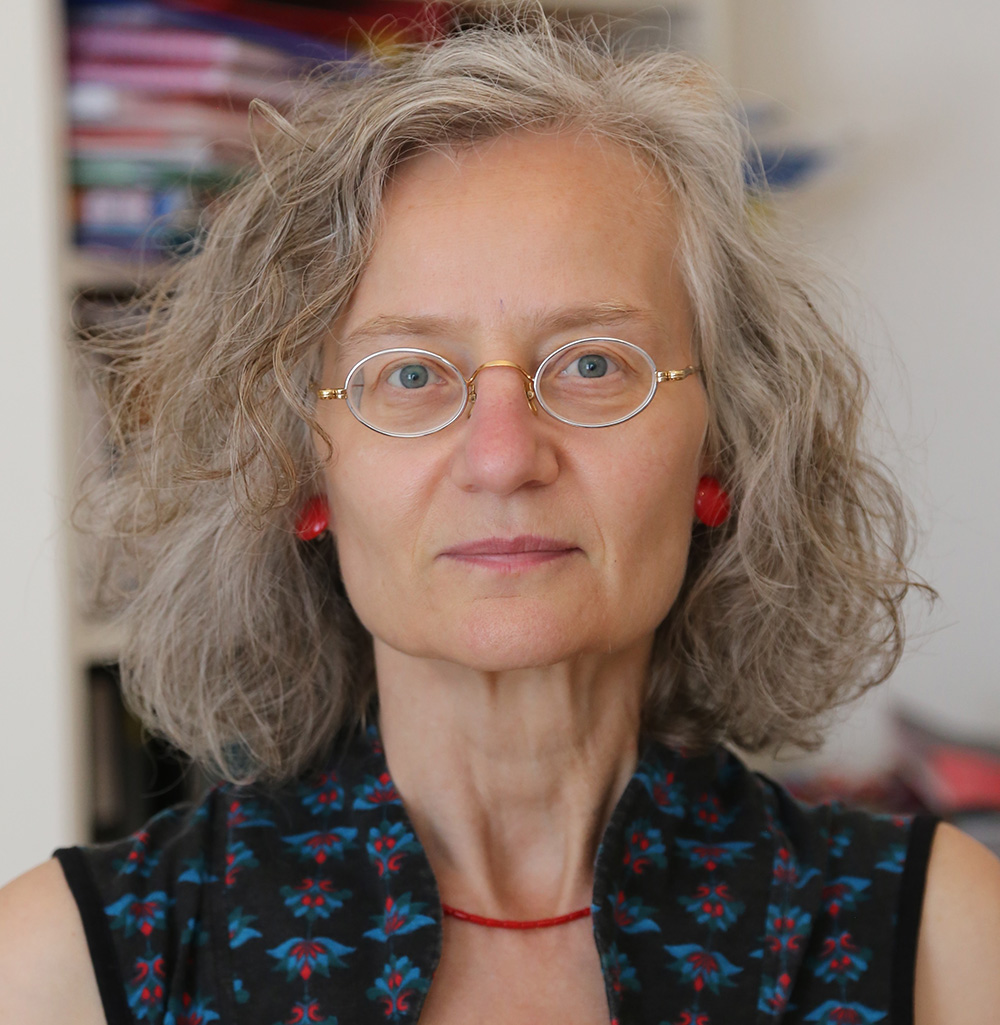c:o/re Junior Fellow 10/22 − 09/23

Arianna Borrelli is a historian and philosopher of natural philosophy and modern science. Her overarching research interest is the relationship between scientific knowing and the strategies employed to mediate it, like words, images, formulas or code. Her fields of research include medieval cosmology, early modern meteorology, natural magic and quantum physics, with current work focusing on the historical-epistemological premises and implications of the increasing use of computational tools in science. She holds degrees in both physics and philosophy and a PhD and habilitation in history of science, the latter with the thesis: Formulating phenomena: concept formation and the materiality of theory in the early modern and modern period (TU Berlin 2018). Borrelli held research positions in physics (Rome, CERN) and in history and philosophy of science (MPIWG, Wuppertal, TU Berlin, Lüneburg). She is currently President-Elect of the Commission on History and Philosophy of Computing (HaPoC).
Nonlinearity and Other Stories: Narrative Knowing in the Exact and Computational Sciences of Complexity in the Late 20th Century
By means of a historical-epistemological investigation of notions, practices and discourses of nonlinearity, the project explores the roles played by multimedial narratives in research cultures of exact and computational sciences of complexity. Following previous studies, a narrative is here minimally defined as the temporal or causal connection of two or more events, and it can combine different medial forms, such as written and spoken words, images, formulas, standardized procedures or code.
Focusing on how scientists conceptualized and enacted their nonlinear research objects, be it equations, phenomena, oscillations, dynamics, or systems, I will look for similarities and differences which may be productively grasped in terms of story-telling. Working hypothesis is that narrative resonances between parallel but distinct developments fostered the emergence of overarching narrative cultures connected to vague but heuristically productive ideas of nonlinearity.
An early example of multimedial story-telling about nonlinearity can be found in the Los Alamos report by Enrico Fermi, John Pasta and Stanislaw Ulam on the computation of a nonlinear process of (thermal) energy diffusion in a solid, as coded by Mary Tsingou (Fermi et al. Los Alamos report LA-1940 1955). The report is today often presented as the beginning of chaos theory, and contains elements of what can be seen as a narrative of nonlinearity: a simple nonlinear model (a formula) with a code enacting it, verbal statements of how “the results of our computation show features that were, from the beginning, surprising to us” (p. 7) and plots visually conveying an impression of disorder, as the energy in the system moves back and forth between different thermal oscillation modes. This multimedial structure can be seen as a narrative of how analytic nonlinear terms give rise to a surprising, disorderly behaviour, while no logical-mathematical demonstration of a causal link is provided.
Publications (selection)
Borrelli, Arianna. 2021. Between symmetry and asymmetry: spontaneous symmetry breaking as narrative knowing. In Synthese, 198: 3919–48 https://doi.org/10.1007/s11229-019-02320-8
Borrelli, Arianna. 2020. Poetic imagination in scientific practice: Grand Unification as narrative world-making. In Narrative Cultures and the Aesthetics of Religion. Storytelling—Imagination—Reception, ed. by D. Johannsen, A. Kirsch and J. Kreinath. Leiden: Brill, pp. 314–344. https://doi.org/10.1163/9789004421677_014
Borrelli, Arianna. 2019. Program FAKE: Monte Carlo event generators as tools of theory in early high energy physics. In NTM Journal of the History of Science, Technology and Medicine 27: 479–514. https://doi.org/10.1007/s00048-019-00223-w
Borrelli, Arianna. 2017. Symmetry, beauty and belief in high-energy physics. In Approaching Religion 7(2), special issue on The Beauty Fallacy: Aesthetics of Knowledge in Science and Religion, ed. by A. Borrelli and A. Grieser, pp. 22-36. https://doi.org/10.30664/ar.67711
Borrelli, Arianna. 2015. Genesis des Gottesteilchens: Narrativen der Massenerzeugung in der Teilchenphysik. In Erzählung und Geltung. Wissenschaft zwischen Autorschaft und Autorität,ed. by S. Azzouni, S. Böschen and C. Reinhardt. Weilerwist: Velbrück, pp. 63–86. http://dx.doi.org/10.14279/depositonce-8379

